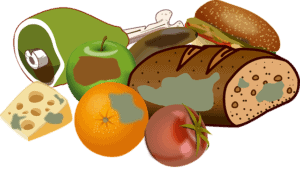If you want to make your English sound more natural, more like a native speaker, then pay close attention to today’s lesson. Because I’m going to teach you five phrases that English learners often use, but that native English speakers would never say – either because they’re incorrect or because these phrases just don’t sound natural.
Remember – I
don’t want you feel BAD about these mistakes; I want to help you learn from them instead!The truth is that it’s quite common to fall into the habit of using unnatural phrases if you live in a place where you don’t have much opportunity to talk with and listen to native English speakers. That’s why I’m here to help correct these phrases and show you a better way to say them.
And the wonderful thing about the internet is that even if nobody else in your area is a native English speaker, you can listen to and learn from native English speakers online!
OK, phrase #1 that native English speakers never say is…
#1 – John Is Married With Maria. (Incorrect)
When talking about two people who are married, we never say “married with” – instead, say one of these:
- John is married to Maria.
- John and Maria are married.
It’s confusing because “with” is often used for being together or interacting together – we talk with someone, we live with someone – but we are married to a husband/wife.
And we also get engaged to a person (that’s when we promise/agree to get married in the future) – engaged to, not engaged with.

diamonds set in gold bands
#2 – My Son Has Five Years Old. (Incorrect)
Some languages use the verb “have” when talking about age, but in English we use the verb “to be.” So the correct way to say it is:
- My son is five years old.
- My son is five.
If you’re talking about yourself, you’d say “I am 36 years old” not “I have 36 years,” OK?
And when asking about age, we would do it like this:
- How old are you?
- How old is he/she?
- How old are they?
Again, we use the verb “to be,” never “have.”

#3 – I’ll Pick Up Him From The Airport. (Incorrect)
Phrase #3 native English speakers never say involves a problem with phrasal verbs, and that is saying things like “I’ll pick up him from the airport” or “These eggs are bad, we should throw away them.”
Let me try to explain this very simply: when the phrasal verb has an object – meaning something that receives the action – if we use the object’s name, then we can say it two ways:
- I’ll pick John up.
- I’ll pick up John.
- We should throw these eggs away.
- We should throw away these eggs.
However, if we use a pronoun (a word like him, her, you, it, us, them), then the pronoun MUST go in the middle of the phrasal verb:
- I’ll pick him up.
- We should throw them away.

throw the food away / throw it away
#4 – I Like Very Much Your Lessons. (Incorrect)
What’s wrong with this sentence? At first glance, it doesn’t appear to have any grammar mistakes… but here’s the problem.
When we have a verb (in this case, “like”) and a direct object (in this case, “your lessons”) – we typically avoid putting anything in between the verb and its object. So a few better ways to say this are:
- I like your lessons very much.
- I really like your lessons.
Another example would be: “I brushed quickly my teeth” – it sounds unnatural to have a word (quickly) in the middle between the verb and its object, so we should say:
- I quickly brushed my teeth.
- I brushed my teeth quickly.

#5 – “Do You Like Pizza?” / “Yes, I Like.” (Incorrect)
Finally phrase #5 is an answer to a question: when someone asks a question like “Do you like pizza?” and an English learner might answer “Yes, I like.” – this is not correct, it’s not natural.
The right way to say it is “Yes, I do” or “No, I don’t.”
When someone asks you a yes/no question with do, the short answer always uses do/don’t.
When someone asks you a yes/no question with did, the short answer always uses did/didn’t.
So an example with “did,” asking a question about the past, would be this:
- “Did you have lunch?”
“Yes, I did / No, I didn’t”
(Not “Yes, I had”)

As you can see from these examples, these are NOT major, serious mistakes. They won’t cause communication problems; however, they do make your English sound a little strange, and they make it obvious you’re not a native speaker.

Post a Comment